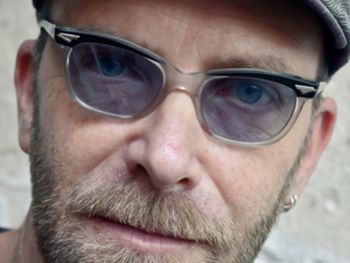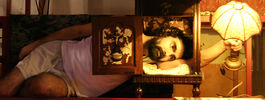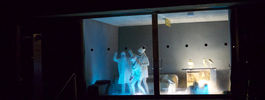

Australia » Objects
The Dilly Bag
In simple terms a dilly bag is a woven string bag. This particular bag, woven by Frances Djulbing, is in the tradition of her people and comes from North Eastern Armhem Land. The techniques used in the weaving of the bag have been passed to Frances, who in turn is teaching these to others, in the continuous lineage of the oldest culture on the planet. In the Malthouse Theatre’s presentation of The Shadow King (a radically altered version of King Lear, adapted by Michael Kantor and Tommy E Lewis and spoken in five indigenous Australian languages as well as English), this Dilly Bag was carried by Frances' character of Edmund’s mother (the character replaced Shakespeare’s Kent and cleverly emphasized the importance of female elders in the community). A repository of sacred knowledge and objects, the bag was symbolically torn in two and discarded during production when Edmund with Goneril and Regan capture Lear and the mother. The Dilly Bag, its place within this telling of King Lear, and its relationship to both a truth and a misrepresentation of Australian Indigenous culture, forms a suite of fascinating and deeply complicated stories. There is a story in the joy of a production that examines a traditional white cultural emblem (Lear) and its western understanding of fighting for, owning and selling land as antithetical to the traditional inhabitation of land by indigenous peoples. There is the story of the creative exchange between the city-based creative team and the artisans of Beswick, Katherine and Ramingining and the challenge of making a version of a dilly bag that, despite its great cultural significance, could be torn in two each performance. And there is the greater story of the dilly bag. A story that has different meanings to different tribal groups throughout Australia. The bag from The Shadow King is from Frances Djulibing’s country, and its story is truest when told by her and from her land and the place of her culture. Intertwined in this are the ways that stories from the Aboriginals of Australia have been told as those of yesterday, told by white faces and told without the context of a continually evolving and living culture. And finally there is the story of the Dilly Bag that Frances began to weave at the beginning of the rehearsal period in Melbourne and completed during the fourth season of the production in Perth on the other side of this vast country.





